Magarey Orchard is expanding its plum production, with extra plantings set to increase its volumes within the next five years.
Cousins Judy and Eljsa Magarey are fifth generation farmers, and the family-run business produces around 20 tonnes (20,000 kg) of 10 varieties plums on average per year, and say the demand for higher volumes is the main reason behind the expansion.
"We will be planting 400 trees in this coming winter," Judy said. "Plums are a bit harder to maintain and grow, but we can charge a higher price than a pear, so we are trying to expand a little more in the plum business. That's why we are planting more trees, but we won't get fruit from those for around four to five years. The plums are what hold us together from pear season to pear season and find our customers want higher volumes, and we in the past haven't been able to provide that. We supply to the Metropolitan Fresh and Tony & Mark's, which are greengrocer chains, and as they have five shops each, and they would like to buy higher quantities than what we can currently provide them."
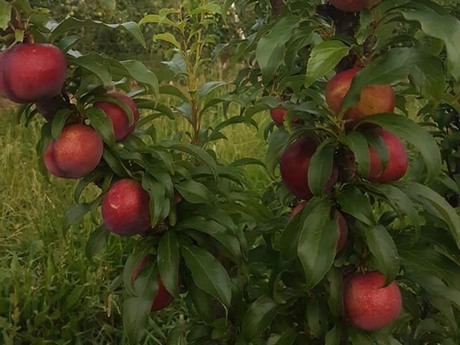
While Magarey Orchard, in South Australia's Coromandel Valley, is primarily a pear producer, it grows plums during the summer season, and is currently midway through the 2018/19 season.
"We've gone through four varieties Donsworth, Mariposa, Satsuma, and we are currently on Amber Jewel," Judy said. "We are also picking Ruby Blood, and we have three more varieties that trickle in throughout the end of February to the middle of March. For us, because it is not our main crop, every year is different and trees produce different amounts. Satsumas, a red flesh plum, it is one of our most popular varieties. It seems consumers prefer the red flesh plums over the yellow flesh plums."
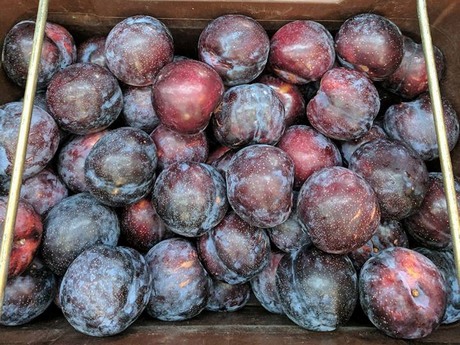
In January, the region experienced some extreme heat with temperatures reaching into the mid-40s, which Judy says has made the fruit ripen a bit faster than previous seasons.
"We are rushing to pick our Amber Jewel’s at the moment as we found out that our Ruby Bloods have ripened sooner than expected due to the hot weather," she said. "Our Ruby Bloods should not be ready for another two weeks but here we are trying to pick both varieties when we should only be picking one. We are fortunate as we are in a valley and we don't necessarily get affected by hail. We get a little bit, but not as much as the apple growers (did in December). We also have our own watering bore, so we have all our underground water. So, we don't have an issue with that."
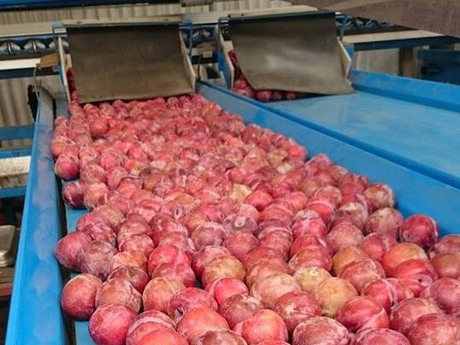
Eljsa added that another difficulty is that it is hard to predict what is going to happen with the fruit when extreme weather hits.
"Sometimes the trees shutdown when it is too hot, and the fruit won't ripen properly - so it is all over the shop really," she said. "But overall, it has been a dry season. There is no real formula for fruit, as we have learnt. We find it very hard because in January and February there is more market competition. Therefore, we are moving towards growing a couple of varieties which are earlier than Donsworth, our current early variety, and a couple of later varieties which will be ready closer to the end of March and April. People are persistent with their plums - they are happy to eat them in autumn. They are no longer just a summerfruit as we know it."
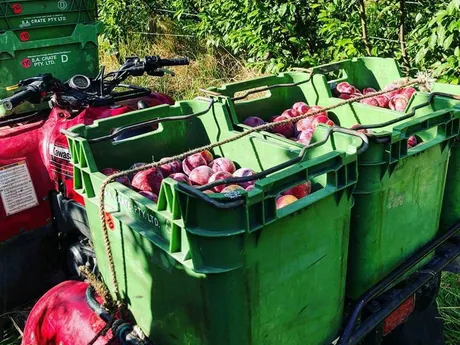
The Orchard also produces a very tiny amount of apricots, with a couple of dozen trees - mostly Trevatt - providing fruit for the farm gate shop, which is an important sales outlet for the business, given it does not supply outside the state.
"We used to have more varieties and more apricot trees, but the problem is you are picking around Christmas time, and it was more important for the family to be spending time with each other, and not in the orchard picking," Judy said. "We have our shed fruit sales that we open to the public Monday to Friday, where we sell our second-grade and rough fruit. Our first-grade, second and some rough fruit go to 40 greengrocers in and around Adelaide. We are one of the few growers that leave the fruit on the trees longer which allow our fruit to be sweeter. The reason as to why we can do this is because we sell to local shops in Adelaide, which means we don’t have to transport our fruit very far.”
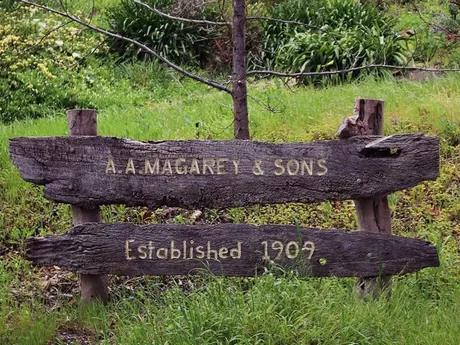
Magarey Orchard is in its 110th year of fruit farming, with around 20 hectares just 15 kilometres from the Adelaide CBD.
"So, we are so grateful - it's the best spot really, it is the best pear growing environment," Eljsa said. "It doesn't get freezing cold, so it's milder temperatures down here as opposed to the Lenswood and Ashton areas, meaning the pears set better."
For more information
Judy Magarey
Magarey Orchard
Phone: +61 8 8278 3692
admin@magareyorchard.com
www.magareyorchard.com
